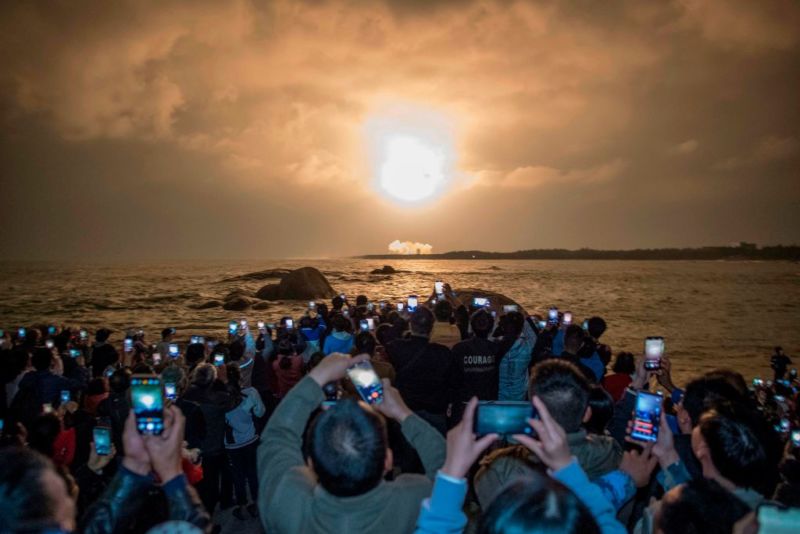
For the second year in a row, China dominated the global rankings in terms of orbital launches. The communist country finished 2019 with 34 orbital launch attempts and 32 successes.
Russia ranked second, with 25 attempts and successes, followed by the United States with 21 out of 21 successful launches. New Zealand, Europe, and India all tied for fourth place overall, with six successful launches. (These rankings are determined by where the rocket's primary stage is manufactured.)
The coming year should see this global competition tighten. China has declared its intention to launch 40 or more orbital missions in 2020. The China Aerospace Science and Technology Corporation will conduct the majority of missions with its Long March fleet of rockets, including notable missions such as China's first Mars spacecraft as well as the Chang'e-5 lunar probe, which is intended to bring Moon samples back to Earth.
China also has a burgeoning commercial launch sector, which leverages private investments to develop rocket technology spun off by the government. We should see several more launch attempts by Chinese companies in 2020, including a handful of missions that make it to orbit.
America rising
The United States should also see a surge of growth. After SpaceX launched 13 rockets in 2019, the company is expected to take a significant step forward with a mix of commercial satellites, NASA payloads, and its own Starlink Internet satellites. If all goes well, SpaceX could launch its Falcon 9 rocket 30 or more times this year.
The Colorado-based United Launch Alliance should also increase its cadence this year. In 2019, the company launched just two Delta IV-Medium rockets, one Delta IV-Heavy, and two Atlas V missions. It could launch half a dozen Atlas V missions, alone, this year. Newcomers Virgin Orbit and Firefly Aerospace could also add to the American tally in 2020.
For both SpaceX and United Launch Alliance, no missions will be more significant in 2020 than crewed launches. Both SpaceX, with its Dragon spacecraft, and United Launch Alliance, with Boeing's Starliner vehicle, anticipate launching crewed missions from Florida for NASA this year.
While Russia is likely to hold down third place in 2020, in terms of orbital launches, New Zealand could take sole possession of fourth place. Although the US-based Rocket Lab plans to open a launch site in Virginia early this year, the majority of the company's flights should still take place from Mahia Peninsula in New Zealand. The company hopes to launch once per month this year.
reader comments
205